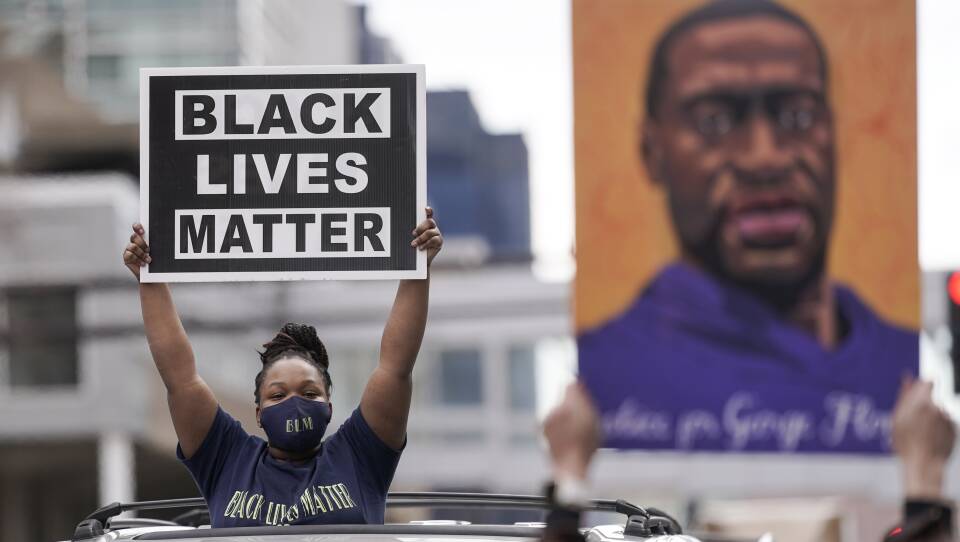In the end, it was all about heart — the physical muscle that pumps the very blood of life throughout the body nd the heart of emotion, the symbol of our deep resources of sympathy, understanding, strength and courage. Special prosecutor Jerry Blackwell evoked both meanings in his final remarks to the jury in the trial of former Minneapolis, Minnesota, police officer Derek Chauvin. In a soft, calm voice, Blackwell referenced the nearly nine minutes Chauvin kept his knee on the neck of George Floyd until his heart stopped beating. Then the prosecutor looked the jurors in the eye and said, “You were told ... that Mr. Floyd died because his heart was too big. Now ... you know the truth. And the truth of the matter is that the reason George Floyd is dead is because Mr. Chauvin’s heart was too small.”
A day and half after the jury’s ten hours of deliberations, my heart was beating fast and hard as I listened to Judge Peter Cahill read the jury’s three guilty verdicts. I didn’t realize I was holding my breath until pain shot through my hands from my unconscious death grip on the arms of my chair.
Reflexively, I said out loud, “Thank you, God.” I knew I wasn’t alone in uttering that prayer — I felt as though I had linked hands spiritually with millions of Americans, especially people of color. The millions who, like me, were falling down weeping, relieved after expecting a "not guilty" verdict, and still not quite believing.
Basketball superstar and broadcaster Dwayne Wade mirrored my reaction, telling his fellow broadcasters on “NBA On TNT,” “I was still staring at the TV ... because we’ve never seen this, you know?”
“Expectation is the root of all heartache,” Shakespeare noted. So the only way not to be painfully disappointed is to eliminate all expectation or hope — as in, stamping out the tiniest spark of hope. But even for a glass-nearly-empty person like me, that’s really hard to do.
I set myself up for the Bard’s heartache as I kept an ember of hope alive, despite being well versed in the past history of police officer acquittals. Former cop and criminologist Phillip Stinson of Bowling Green State University maintains an extensive database of deadly police interactions. He found that since 2005, of the 140 cops charged, only 44 were convicted. His research reveals that in fatal shooting cases, the majority of officers avoided not only conviction but also prosecution. Stinson told the Financial Times, “Police officers do not like to arrest other police officers.”
No wonder Derek Chauvin’s triple guilty verdicts left so many of us in shock. Because we know that there had to be the coalescing of an extraordinary set of circumstances: a video of George Floyd dying in real time, bystanders turned trial witnesses, a host of forensic experts linking Chauvin’s knee to cutting off Floyd's life’s breath and some of Chauvin’s fellow officers testifying against him.
I don’t expect that the other officers in the Floyd killing will also go to jail, or that Kim Potter — the 26-year Minnesota police officer who mistook her taser for a gun, killing Dante Wright, will be convicted. Meanwhile, most of the African-Americans I know can, at any time, recite a growing list of people of color who’ve died at the hands of police. George Floyd’s brutal murder was not only anguishing psychic trauma but also all-too-familiar wrenching heartbreak. Derek Chauvin’s conviction is not, as many agree, justice. But maybe it is a first step toward accountability.
I don’t want this one court victory to gloss over the depth of the systemic racism in policing, but I also need to mark this pivotal moment. The meaning was captured so well by editorial cartoonist Mike Luckovich of The Atlanta Journal Constitution newspaper. The cartoonist drew Judge Cahill sitting on the bench looking toward the jury. Inside the graphic bubble he penned the words, “We the Jury find Black Lives Matter.”





